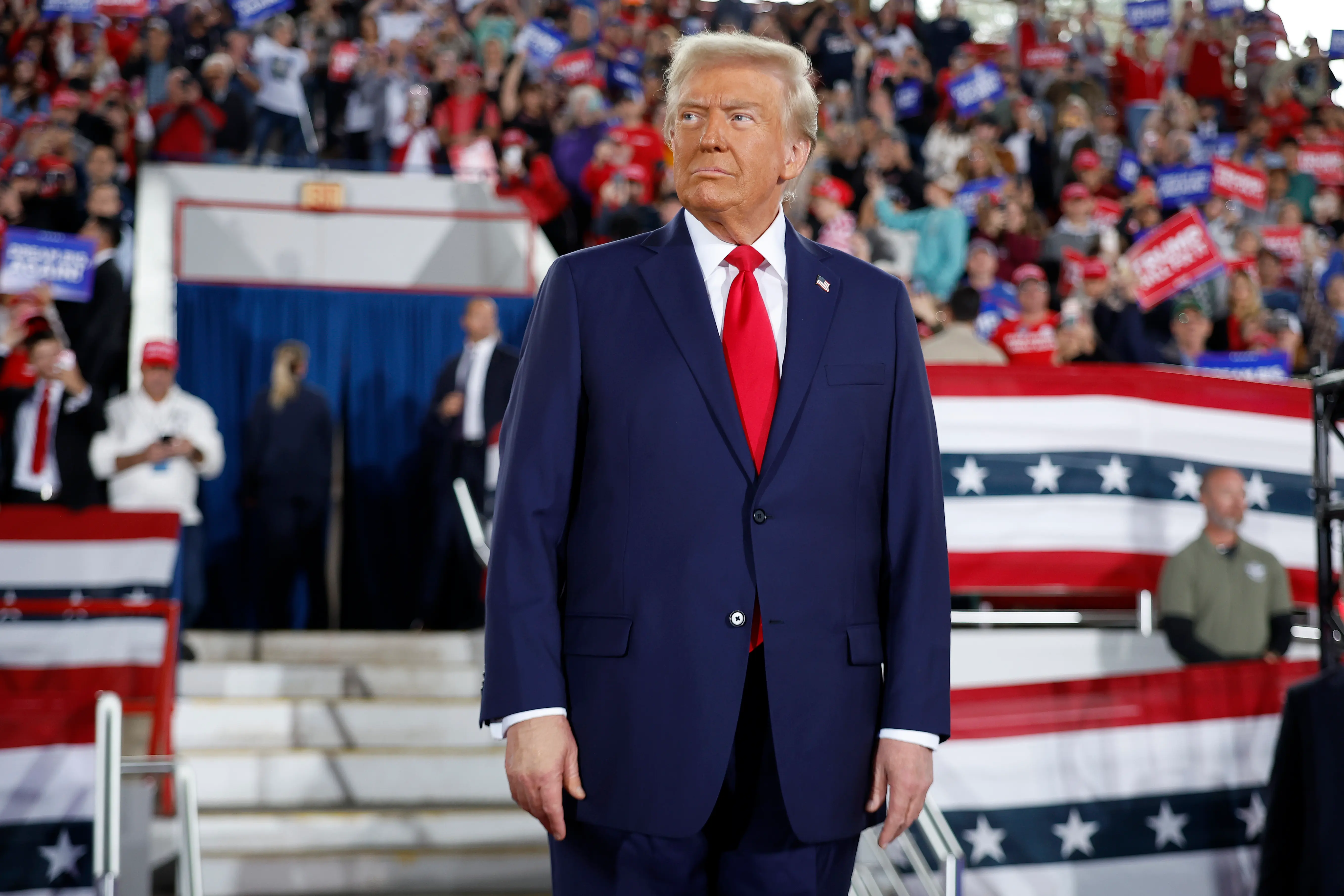Donald Trump says television networks critical of him should possibly lose their licences to air shows
-
 Donald Trump © Getty/Everett Collection
Donald Trump © Getty/Everett CollectionDonald Trump has recently made a bold statement suggesting that TV networks that air overly critical commentary about him may lose their broadcasting licenses. The comments followed the ABC and Jimmy Kimmel events that raised free speech and media censorship concerns. Trump's comments have garnered attention because they challenge the US free press tradition.
Trump made this controversial statement on Air Force One after a state visit to the UK. The president said the networks were mostly negative about him. His criticism of these networks questions the press freedom-government regulation balance.
As mentioned by NPR on September 19, 2025, he said,
"If they're 97% against, they give me only bad publicity or press. I mean, if they're getting a license, I would think maybe their license should be taken away. It'll be up to Brendan Carr. I think Brendan Carr is outstanding. He's a patriot, he loves our country and he's a tough guy."
The remarks have led to a debate about whether the government should have the power to revoke licenses for political reasons. Critics argue that such actions could be seen as an infringement on free speech and a step toward authoritarian control.
Here's what Donald Trump said
Trump recently critiqued TV networks that cover him negatively. He proposed that these networks, which he claims are overwhelmingly anti-him, lose their broadcasting licenses. He noted that 97% of the press was negative about him during his election campaign. Trump thought a network that was consistently critical could be unfit to operate.
Trump spoke after ABC suspended Jimmy Kimmel's late-night show. Kimmel's comments about a Trump-supporting murder suspect were controversial. Critics criticized the suspension and the FCC threat as an attempt to silence opposition. When FCC Chairman Brendan Carr supported the action and warned broadcasters of consequences for noncompliance, the situation escalated.
The FCC can regulate ABC and other major networks. Trump ally Carr has suggested networks should be held accountable for their coverage. Many worry that the government's speech policing threatens constitutional freedoms. Trump's comments have sparked a debate on media control and censorship, which many fear will lead to authoritarianism.
Trump's license revocation request reflects his longstanding dissatisfaction with negative media coverage. He often criticizes the media's portrayal of him and his administration. He is accused of undermining the First Amendment, which guarantees free speech and the press. Legal experts and media analysts warn that such actions could lead to more press attacks.
As mentioned by the BBC, Trump stated on Tuesday,
"I have read some place that the networks were 97% against me, again, 97% negative, and yet I won and easily [in last year's election]. They give me only bad publicity [and] press. I mean, they're getting a licence. I would think maybe their licence should be taken away."
Comedians, actors, and journalists have reacted strongly to Jimmy Kimmel's suspension and Trump's remarks. Curing free speech worries many. Conservatives believe broadcasters should be held accountable for offensive or misleading content. This debate shapes media regulation and free speech in the US.
Kimmel's suspension and media regulation debates show the First Amendment vs. government. Some say the government shouldn't interfere with free speech, but others say spreading inaccurate information should be punished. Questions about the media's role in democracy complicate the situation.
The complex relationship between politics, media, and free speech is shown by this controversy. ABC's Jimmy Kimmel Live! airs Kimmel's unique political humor.
TOPICS: Donald Trump
- "That's a LOT of actors whose career fell off back in the eighties": Internet reacts as crowd cheers for Donald Trump entering the Kennedy Center Honors event
- Trump reportedly traveled on Epstein's private jet "many more times than previously has been reported" including with witnesses in Maxwell's case
- SNL's latest cold open takes aim at President Trump over Epstein Files redactions
- Billionaire entrepreneur leads NASA into high-stakes space race against China